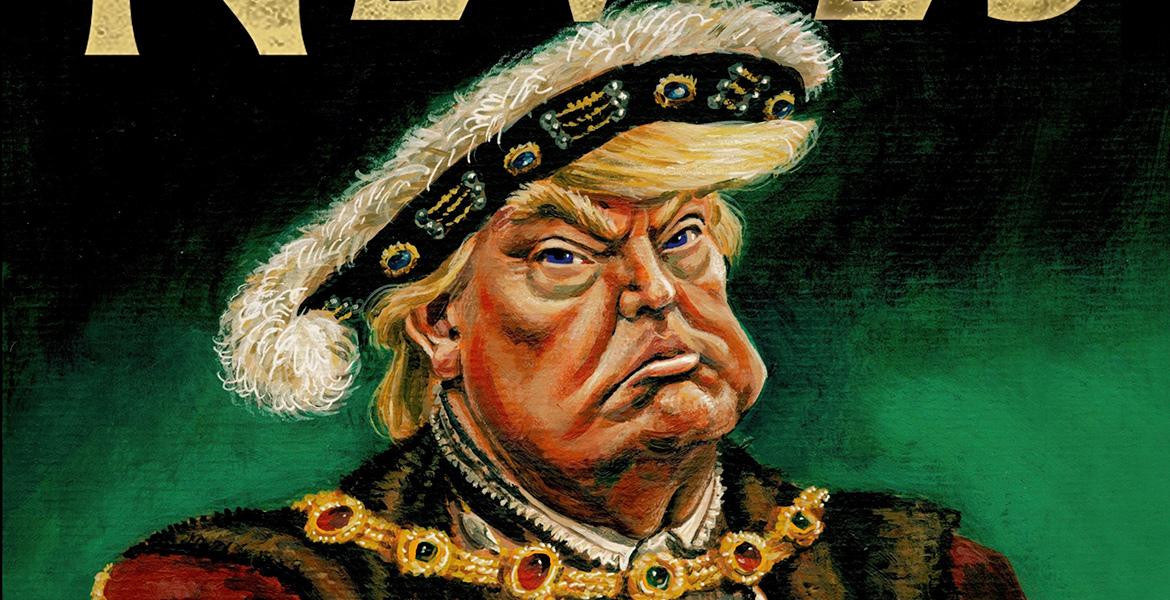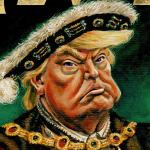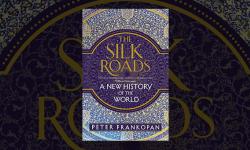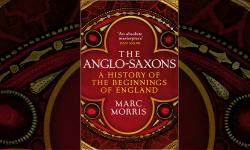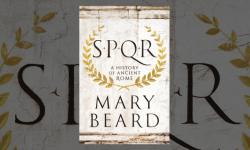Fayke Newes: The Media vs the Mighty from Henry VIII to Donald Trump, Derek J. Taylor
Since Johannes Gutenberg introduced the printing press to Europe, publicly-available information about those in power has increased exponentially. First in pamphlets, then through periodicals, journals, and newspapers, and now through television and the internet, the population has been kept informed – and misinformed – about the manoeuvrings of those who govern them. These sources of ‘news’ have shaped the public’s opinions and actions, its voting patterns, and even its decisions to protest and riot. Now, organisations and individuals cannot hope to do well without media teams behind them.
Derek J. Taylor’s recent book, Fayke Newes: The Media vs the Mighty from Henry VIII to Donald Trump, aims to chart this growth in information and misinformation over the last five hundred years. It aims to show just how important control of the press has been in the fortunes of the ‘mighty’ – the monarchs, politicians, and governments that rule – and how a realisation of that has led them to manipulate information to suit their own purpose. It is a story about the media-mighty war in which the two foes struggle for the hearts and minds of the population. It is, therefore, a political polemicA strong verbal or written attack on someone or something.A strong verbal or written attack on someone or something. on the importance of a free press.
And this is the central problem with Fayke Newes as a work of history. As a former ITN, BBC, and Associated Press reporter, Taylor is obviously impassioned by his subject: the abuse of the press by the mighty and their media lapdogs, and the negative impact this must necessarily have on democracy and the electorateAll the people in an area who are able to vote.All the people in an area who are able to vote.. But this sort of one-sided passion has no place on the history shelf, and Fayke Newes instead runs the risk of becoming ‘fake history’. Taylor's zeal to support his argument allows no room for alternative opinions or contrasting facts, nor for the nuances of historical cause and effect. The sweeping statements – such as Charles I attempting to ‘put the clock back … ignoring the past 350 years of Parliament’s rising power’  p. 27. – are so generalised they are wrong; and the lack of historical discipline has led to some unforgiveable errors. Foremost among these is the use of incorrect quotations. With no referencing – never a particular surprise in a work of popular history – and no bibliography, it becomes harder to check the veracity of quotations, but one that was checked (that of Oliver Cromwell stating, ‘Government is for the people’s good, not what pleases them’), although within the spirit of the quotation is not within the reality.
p. 27. – are so generalised they are wrong; and the lack of historical discipline has led to some unforgiveable errors. Foremost among these is the use of incorrect quotations. With no referencing – never a particular surprise in a work of popular history – and no bibliography, it becomes harder to check the veracity of quotations, but one that was checked (that of Oliver Cromwell stating, ‘Government is for the people’s good, not what pleases them’), although within the spirit of the quotation is not within the reality. p. 33. According to Charles Frith, the closest he came to this was saying, ‘That’s the question: what’s for their good, not what pleases them’. Oliver Cromwell and the Rule of the Puritans in England (1904) p. 484. In so doing, Taylor is falling into the very trap of fake news – manipulating information to suit the argument – that he is complaining about. The irony of this is not lost on the reader.
p. 33. According to Charles Frith, the closest he came to this was saying, ‘That’s the question: what’s for their good, not what pleases them’. Oliver Cromwell and the Rule of the Puritans in England (1904) p. 484. In so doing, Taylor is falling into the very trap of fake news – manipulating information to suit the argument – that he is complaining about. The irony of this is not lost on the reader.
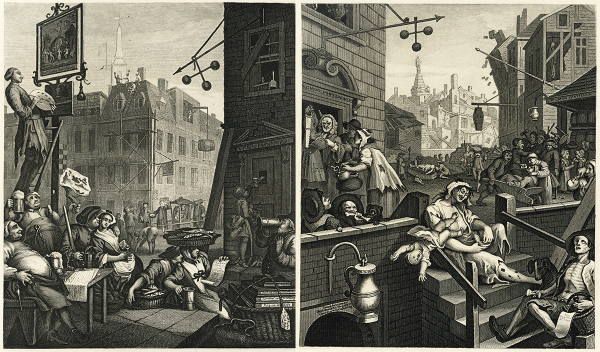
Taylor is obviously proud of his research: in his acknowledgements he states that ‘I’ve consulted close to a hundred books and academic papers in researching Fayke Newes.’ p. 354. But for a three hundred and fifty-page book, this is not so impressive. A brief survey of the bibliographies of similar length popular history books pulled off the shelf at random shows that an average bibliography lists three hundred and eighty-one books, articles, and manuscriptsBooks, documents, or piece of musics written by hand rather than typed or printed. Later, pieces of work that have not yet been published.Books, documents, or piece of musics written by hand rather than typed or printed. Later, pieces of work that have not yet been published. . This ‘close to a hundred’ is thus shown to be falling far short of the average. Taylor also occasionally mentions historiographyThe study of writing history, or of history that has already been written.The study of writing history, or of history that has already been written. – Draper Hill on the political cartoonist James Gillray and Phillip Knightley on the First World War, for example
p. 354. But for a three hundred and fifty-page book, this is not so impressive. A brief survey of the bibliographies of similar length popular history books pulled off the shelf at random shows that an average bibliography lists three hundred and eighty-one books, articles, and manuscriptsBooks, documents, or piece of musics written by hand rather than typed or printed. Later, pieces of work that have not yet been published.Books, documents, or piece of musics written by hand rather than typed or printed. Later, pieces of work that have not yet been published. . This ‘close to a hundred’ is thus shown to be falling far short of the average. Taylor also occasionally mentions historiographyThe study of writing history, or of history that has already been written.The study of writing history, or of history that has already been written. – Draper Hill on the political cartoonist James Gillray and Phillip Knightley on the First World War, for example p. 87 and p. 185. – but there is no attempt to join the discussion, and a cynic might think that the work of others is only used to support his own argument. Taylor’s lack of research shows in the detail of Fayke Newes. The author, for example, refers to Hogarth’s Beer Street and Gin Lane sketches as both attacking ‘the rising abuse of alcohol’ in the eighteenth century.
p. 87 and p. 185. – but there is no attempt to join the discussion, and a cynic might think that the work of others is only used to support his own argument. Taylor’s lack of research shows in the detail of Fayke Newes. The author, for example, refers to Hogarth’s Beer Street and Gin Lane sketches as both attacking ‘the rising abuse of alcohol’ in the eighteenth century. p.83. For anyone who has studied these, it is obvious that beer is offered as a cure for gin: Hogarth is recommending beer, not attacking it. These historical errors might appear minor, but they cast doubt on the accuracy of the entire book.
p.83. For anyone who has studied these, it is obvious that beer is offered as a cure for gin: Hogarth is recommending beer, not attacking it. These historical errors might appear minor, but they cast doubt on the accuracy of the entire book.
So, what is there of merit in Fayke Newes? A word should absolutely be said in favour of the cover: this cleverly-drawn picture of Trump as Henry VIII is eye-catching, humorous, and contemporarySomeone or something living or occurring at the same time.Someone or something living or occurring at the same time.. But there is an old adage about books and covers that does not need repeating here. On the whole, the book is written in an engaging and lively manner. The author’s passion does come through, and his case studies – selected with a specific point in mind – on the various men who pushed journalism forwards are interesting. This is particularly true of the recent journalists and incidents with which Taylor is more familiar: the chapters on Vietnam, and Blair and Iraq are especially good, as is his ongoing discussion on the role of technology in furthering the press. Taylor’s analysis of the impact of television news is well-explained and insightful; unsurprising, as this is where the author has the most direct experience. Furthermore, he raises some interesting questions over access to accurate information and the future of democracy that should get the reader thinking. As a rallying call for a more open form of government, a better population-wide understanding of how news is created and disseminated, and for proper press freedom, it is naïve but inspiring.
And this is why Fayke Newes deserves to be read: it is not a history book, but it is one man’s informed perspective on the state of journalism today, and how it got to that point. It is a call for intelligent discussion, and it is a call for reform, of the media barons, of the use of propagandaBiased and misleading information used to promote a political cause or point of view.Biased and misleading information used to promote a political cause or point of view., and of the profession of journalism. It is also a warning that if the average person does not take the trouble to inform themselves, to be sceptical of the ‘news’ that they are bombarded with, and to be selective in what they choose to access and believe, then democracy could fall. The media and the mighty may well be at war, but if the one wins over the other, then it will be a Pyrrhic victoryA victory that is so costly in terms of men and resources that it seems no different from losing. It comes from King Pyrrhus of Epirus, who was fighting against the Romans in the Pyrrhic Wars (c.280BCE). Pyrrhus is supposed to have said 'If we are victorious in one more battle with the Romans, we shall be utterly ruined' (Plutarch, Life of Pyrrhus, 21:8).A victory that is so costly in terms of men and resources that it seems no different from losing. It comes from King Pyrrhus of Epirus, who was fighting against the Romans in the Pyrrhic Wars (c.280BCE). Pyrrhus is supposed to have said 'If we are victorious in one more battle with the Romans, we….
- Log in to post comments

